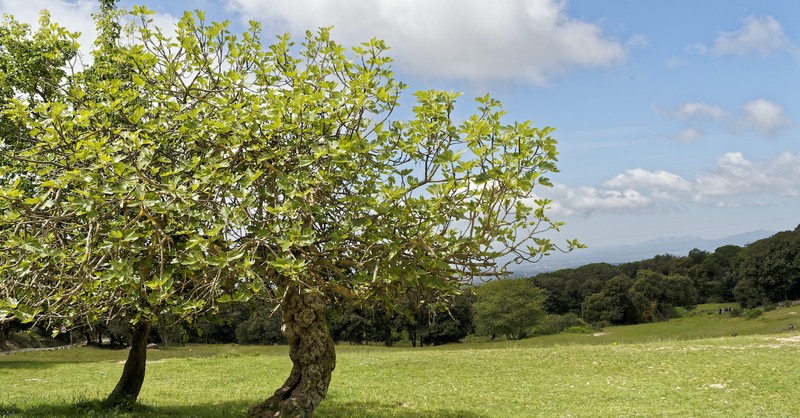God as a Gardener in Our Lives – 3rd Sunday of Lent

Today’s Gospel from Luke offers a parable featuring a man with a barren fig tree in his garden. The gardener begs him to relent from his natural temptation to cut it down. It is natural for people to eliminate unproductive plants. There are two perspectives here: the person who owned the land and the experienced gardener.
A man had a fig tree planted in his vineyard: and he came looking for fruit on it and found none. So he said to the gardener, ‘See here! For three years I have come looking for fruit on this fig tree, and still I found none. Cut it down! Why should it be wasting the soil?’
The landowner is being patient. But the gardener is asking him to continue his patience. The gardener wants one more season for the tree. He will add manure and care for the tree. The gardener planted the tree. He cares for it and desires that it be a strong and fruitful tree. Everything he does is designed to produce a strong, healthy and fruitful tree.
The fig tree offers important spiritual lessons, especially when we see the loving hand of God as a gardener in our lives. The most evident deals with patience. Many of us struggle with being patient enough – whether with plants or certain individuals.
How easy it is to write off certain situations or individuals, seeing that they seem barren, unable to produce. We often look for instant results. The manure will likely help the barren tree. Is there an equivalent in our relationships with those who test our patience?
There are individuals who act as helps in our lives, gently nourishing us, inviting us – like God – to grow and flourish. Trees grow slowly. So do relationships, especially when our natural tendency is to be impatient. God never gives up on us. Nor do certain people in our lives. What can we learn from them?
The issue of bearing fruit is present. Many of us – whether because of age or energy – no longer feel the need to bear fruit and accomplish things. Sometimes it is enough to just be, to not get wrapped up in what we are achieving. That stance of being allows us to be more contemplative, to grow in appreciation of the fruit that we have offered in the past.
But there are also many who still have fruit to offer the church, the world and their families. We can feel some pressure to produce fruit, to contribute.
The gardener in the parable is pretty sure that his work and the manure will help the tree to bear fruit. It probably looks like a lost cause to the landowner’s way of seeing things. He is being invited to keep hoping, even in what looks like an impossible situation.
Scripture today also recounts the familiar experience of Moses and the burning bush, on Mount Horeb. I have written before about the invitation for us to reflect on the sacred spaces in our lives, both geographical and within our hearts.
Take some time this next week of Lent to remember the spaces that have been holy and sacred ground in your life. How do they still speak to you?




Peter Bisson
Posted at 09:06h, 20 MarchThank you Philip!
ayako naud
Posted at 14:04h, 20 MarchMy husband was a real gardener: he waited 20 years since we were married until I became Catholic. He died from ALS shortly after at the age of 57.
Since then for the last 30 odd years, the tree which he nurtured is growing slowly but surely.